On the morning of June 12, the opening ceremony for the 2025 cohort of the jointly run master’s programs in International Trade and Economic Relations, Hospital Management, and Educational Leadership and Management between Nankai University and Flinders University (Australia) was held at the Nankai University Gymnasium.
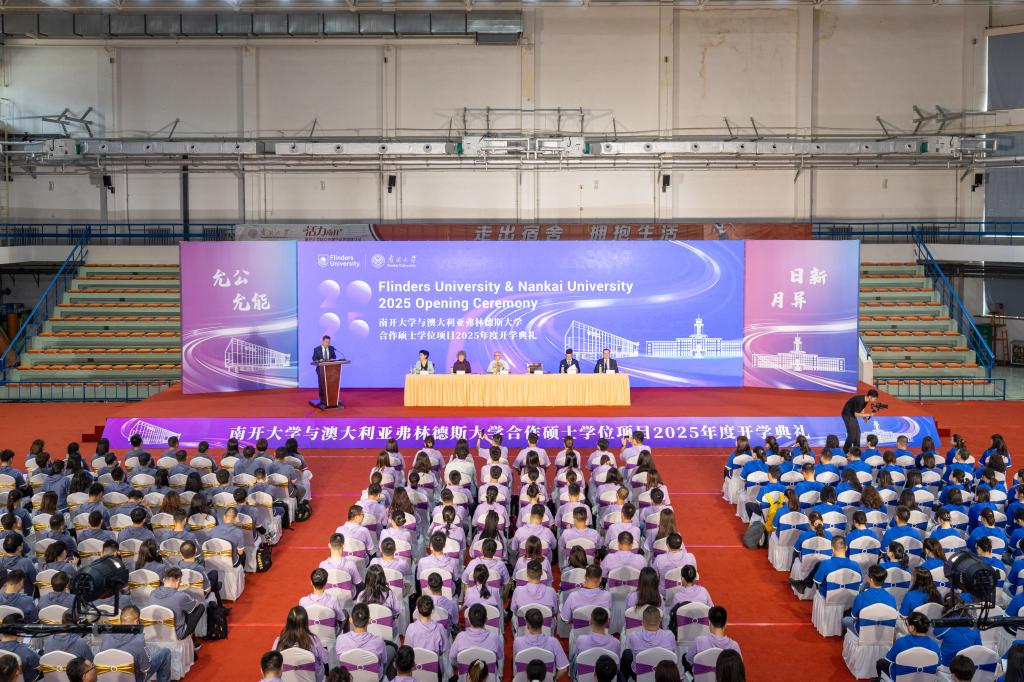
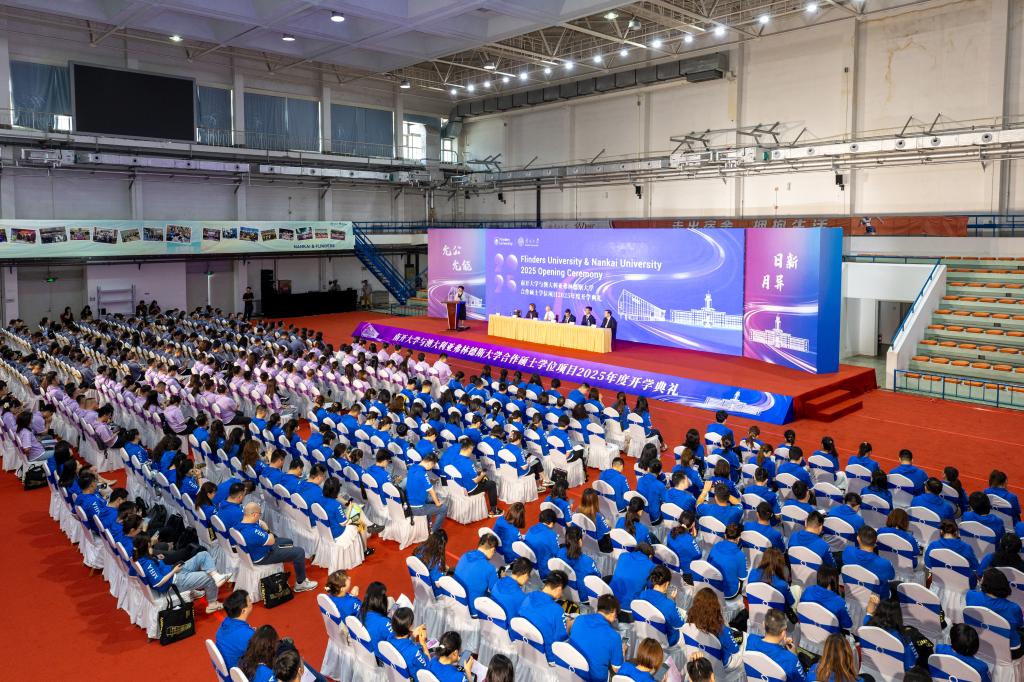
Attendees included Peter Lennox (faculty representative for the International Trade and Economic Relations program), Jacinta Ryan (faculty representative for the Hospital Management program), and James Gordon (faculty representative for the Educational Leadership and Management program) from Flinders University; Professor Liu Binglian, Dean of the Institute of Economics and Social Development at Nankai University; Professor Bai Xuejie, Vice Dean of the Institute; Luo Jingshan, Deputy Director of the Office of International Cooperation and Exchange at Nankai University; the head of the program office; and 578 new students from the three programs. The ceremony was hosted by Vice Dean Bai Xuejie.
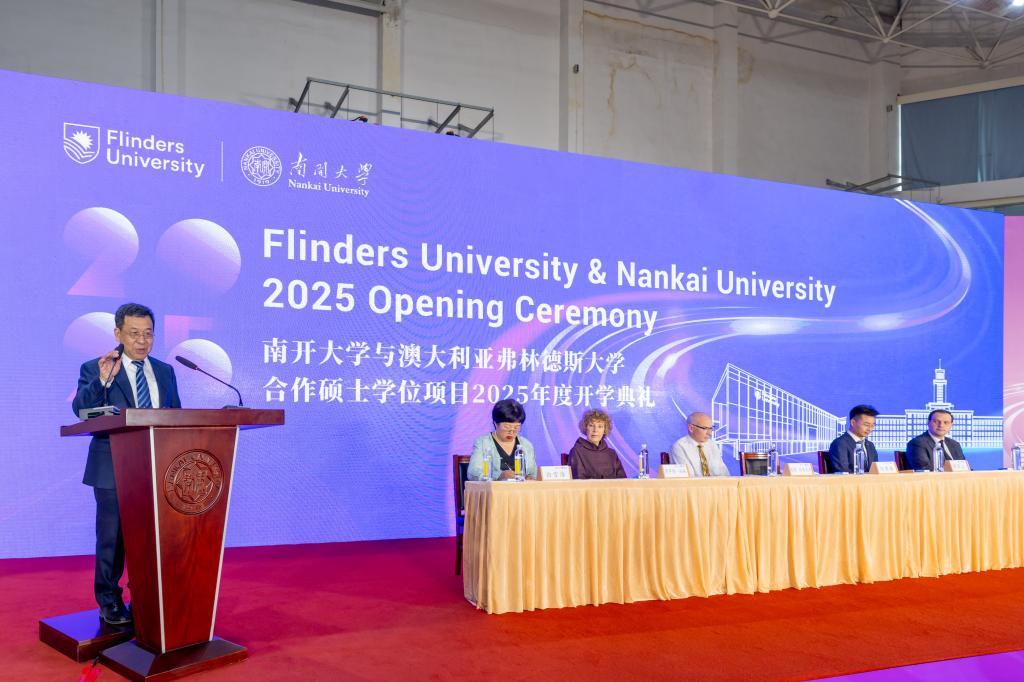
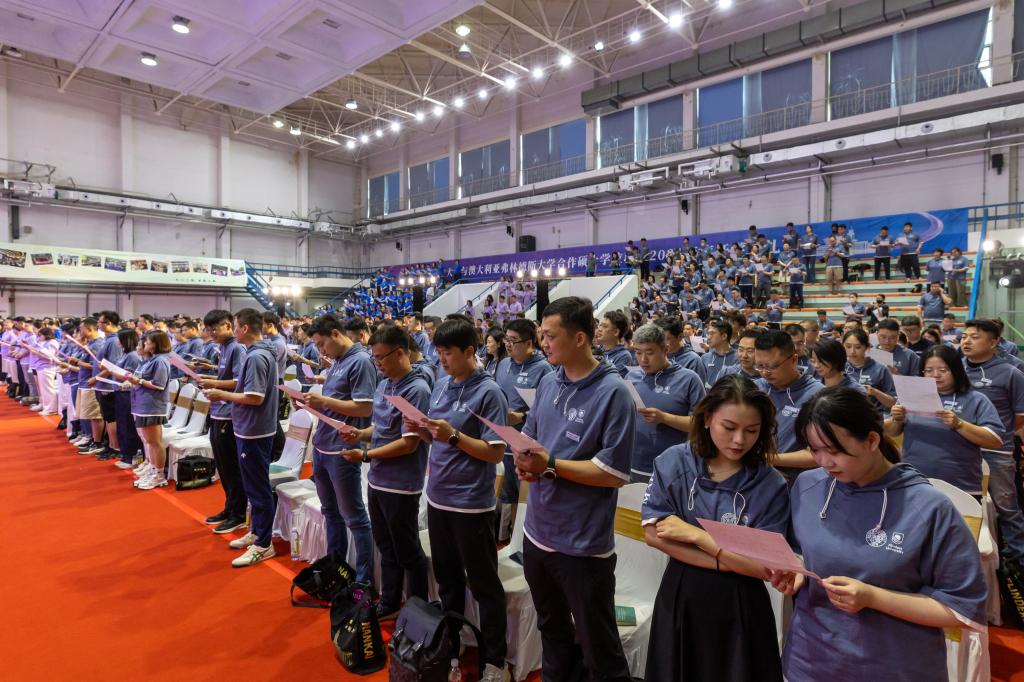
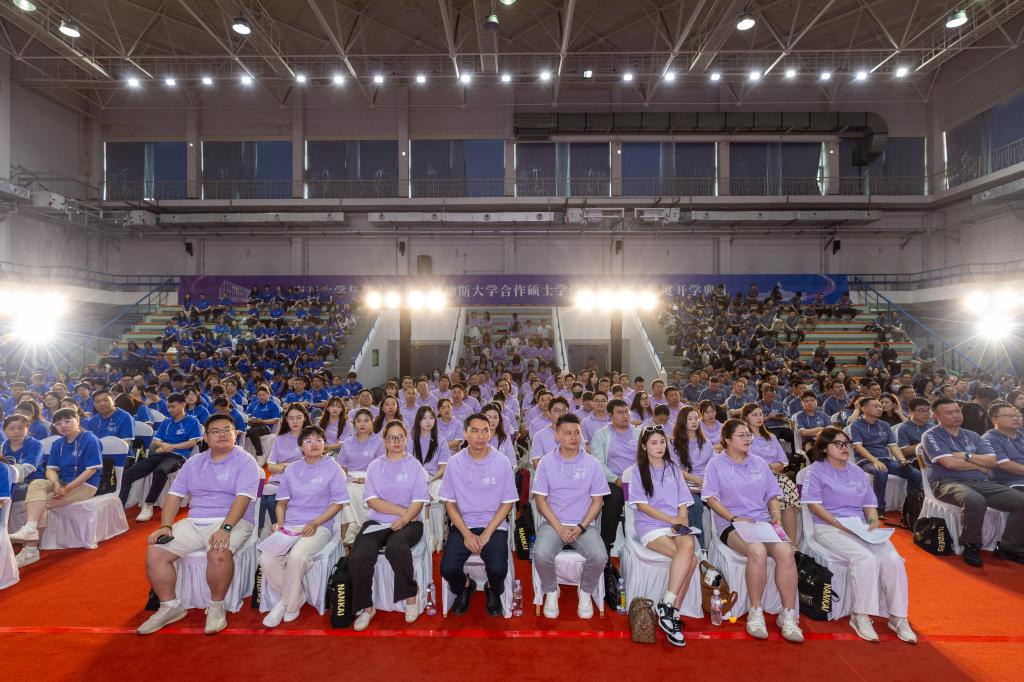
In his welcome address, Dean Liu Binglian extended warm greetings to all new students. He introduced the background of the partnership between the two universities and the accomplishments achieved over the past 25 years. As the founder of the joint programs, he encouraged students to strike a balance between work, study, and family over the next two years and make full use of this valuable opportunity to enrich themselves both intellectually and spiritually. He expressed hope that students would not only succeed academically but also grow to take on greater social responsibilities and missions. He also emphasized that the two universities would continue to work closely in cultivating high-level, high-quality talent.
Peter Lennox, speaking on behalf of Flinders University, welcomed the incoming class of 2025. He noted that since the launch of the joint programs, the two institutions have adhered to a student-centered philosophy. As a model of Sino-Australian educational cooperation, the programs feature distinctive and innovative educational models and have made significant contributions to training internationally competent professionals. He expressed hope that both institutions would continue their productive cooperation in the future and reaffirmed that helping students realize their potential remains the program’s core mission.
Luo Jingshan, representing Nankai’s Office of International Cooperation and Exchange, also welcomed the new cohort. He praised the long-standing partnership between Nankai and Flinders and the achievements made in talent development and research collaboration. He thanked both sides for their mutual trust and dedicated efforts and expressed hope for even more impactful outcomes in the future. He encouraged the new students to embrace their new identity as graduate students and quickly transition into a research-oriented mindset.
Chen Ya, a student representative from the 16th cohort of the Educational Leadership and Management program, delivered a speech on behalf of the new students. She called on her peers to cherish this precious opportunity, cultivate strong academic values, manage the balance between study and work, actively engage in learning and discussion, absorb advanced management concepts, and strive to improve their overall capabilities so they can make meaningful contributions to society.
Following the ceremony, Vice Dean Bai Xuejie gave the cohort their first official lecture: "Patriotism and Public Commitment: A Century of Nankai University." Through vivid stories and historic figures, Professor Bai illustrated the founding and century-long development of Nankai University, leaving a deep impression on the new students.
After the lecture, students officially began their first course of the program, organized by class.
Nankai University launched its joint master’s programs with Flinders University in 2000 (International Trade and Economic Relations), 2003 (Hospital Management), and 2011 (Educational Leadership and Management). To date, the universities have successfully run 36, 33, and 16 cohorts respectively, training nearly 10,000 outstanding students. These programs have consistently received high praise in evaluations conducted by educational authorities in both China and Australia.